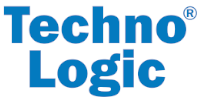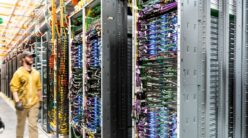In the rapidly evolving landscape of technology, the battle for dominance in AI processor manufacturing has intensified. Major players in the industry are pushing the boundaries of innovation, aiming to deliver more powerful and efficient processors to meet the ever-increasing demands of artificial intelligence applications. This article delves into the latest developments in this high-stakes competition, exploring key advancements, strategic moves, and future implications.
AI Processors: The Heart of Modern Technology
AI processors, specifically designed to handle complex machine learning tasks, are crucial for various applications, from data centers to edge devices. Their ability to perform parallel processing and accelerate AI workloads makes them indispensable in today’s tech ecosystem. As AI continues to permeate different sectors, the demand for advanced AI processors has surged, prompting a fierce competition among tech giants.
Key Players in the AI Processor Market
1. NVIDIA: Renowned for its GPUs, NVIDIA has consistently led the AI processor market. Their latest offering, the NVIDIA A100 Tensor Core GPU, boasts unprecedented performance, catering to both training and inference workloads. With its versatile architecture, the A100 has become a cornerstone in AI research and development.
2. Intel: Intel’s foray into the AI processor market includes the Xeon Scalable processors and the Habana Labs’ Gaudi and Goya chips. Intel’s acquisition of Habana Labs signifies its commitment to enhancing AI capabilities, aiming to provide comprehensive solutions for both cloud and data center environments.
3. AMD: Advanced Micro Devices (AMD) has made significant strides with its Radeon Instinct series and the recent MI100 accelerator. Leveraging its expertise in high-performance computing, AMD focuses on delivering efficient AI and HPC solutions, challenging NVIDIA’s dominance.
4. Google: Google’s Tensor Processing Units (TPUs) are custom-developed AI accelerators designed to optimize machine learning workloads. Deployed in Google’s own data centers, TPUs have set benchmarks in AI performance and efficiency, particularly in deep learning tasks.
5. Apple: With the introduction of the M1 chip, Apple has ventured into AI processor development, integrating machine learning capabilities directly into its devices. The Neural Engine in the M1 chip enhances on-device AI tasks, offering a seamless user experience.
Recent Innovations and Breakthroughs
The race for supremacy in AI processor manufacturing has led to several groundbreaking innovations:
1. Advanced Node Technologies: Companies are transitioning to smaller process nodes, such as 5nm and 3nm, to improve power efficiency and performance. This shift allows for more transistors on a chip, enhancing computational capabilities.
2. Heterogeneous Computing: Combining different types of processors on a single chip, heterogeneous computing architectures are becoming prevalent. This approach optimizes performance by leveraging the strengths of various processing units.
3. AI-Specific Architectures: Tailored for AI workloads, new architectures like NVIDIA’s Ampere and Intel’s Lakefield are designed to maximize AI processing efficiency. These architectures incorporate specialized cores and interconnects to accelerate machine learning tasks.
4. Quantum Computing Potential: Although still in its nascent stages, quantum computing holds promise for revolutionizing AI processing. Companies like IBM and Google are exploring quantum processors’ potential to solve complex AI problems exponentially faster than classical processors.
Strategic Moves and Market Implications
The competitive landscape is shaped by strategic acquisitions, partnerships, and investments. For instance, NVIDIA’s acquisition of ARM aims to create a comprehensive ecosystem for AI processors, blending ARM’s low-power architecture with NVIDIA’s AI prowess. Similarly, collaborations between tech giants and research institutions drive innovation and expedite the development of cutting-edge technologies.
The Future of AI Processor Manufacturing
Looking ahead, the AI processor market is poised for exponential growth. As AI applications expand across industries, the demand for powerful and efficient processors will escalate. Innovations in materials science, such as the use of graphene and other 2D materials, could further enhance processor performance.
Moreover, the integration of AI capabilities in consumer electronics, autonomous vehicles, and IoT devices will drive the need for diverse AI processors. The emphasis will be on balancing performance, power consumption, and cost to deliver optimized solutions for various use cases.
The battle for AI processor supremacy is a testament to the relentless pursuit of innovation in the tech industry. As major players continue to push the envelope, we can expect a wave of advancements that will reshape the AI landscape. Staying abreast of these developments is crucial for understanding the future trajectory of technology and its impact on our world.







